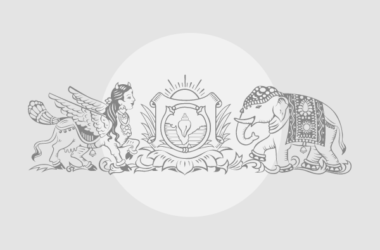“The readability of thought, the facility of a transparent assertion and its unexceptionable constitutional premise lend a novel high quality to a defining judicial choice, which represents a convergence of constitutional rules and the nation’s felt sensitivities concerning the essential proper of free speech as a essential situation of freedom” File
| Picture Credit score: AP
The thirty first January choice of Justice Gautam Patel of the Bombay Excessive Court docket in a bunch of petitions, popularly often called the Kunal Kamra’s case, stands out for its compelling articulation of the constitutional fundamentals in relation to the fitting of free speech on “social media.” Uncoerced by the local weather of our instances, The realized Choose has reiterated the sacrosanctity of the inviolate constitutional assure of free speech, to not be tinkered with or learn down, apart from the cheap restrictions thereon as envisaged in Article 19(2), (6) of the Structure. The affirmation of this constitutional proper and its eloquent defence in opposition to State encroachment by the distinguished Choose is reassuring, regardless that his choice on the topic is just not but binding, due to a cut up verdict by the Division Bench.
The context of the choice is the amended Rule 3(1)(b)(v) of the IT Guidelines 2021, extensively perceived as arbitrary and unjust. Related extracts of the Rule are reproduced beneath:
“3(1)…(b) the middleman…shall make cheap efforts by itself, and to trigger the customers of its pc useful resource to not host, show, add, modify, publish, transmit, retailer, replace or share any info that, — (v) …in respect of any enterprise of the Central Authorities, is recognized as pretend or false or deceptive by such truth test unit of the Central Authorities because the Ministry could, by notification printed within the Official Gazette, specify.”
Failure to adjust to the due diligence obligation beneath the above amended rule would invite penal penalties for the errant middleman beneath Rule 7, reproduced beneath:
“The place an middleman fails to watch these guidelines…The middleman shall be responsible for punishment beneath any legislation in the intervening time in drive together with the provisions of the Act and the Indian Penal Code.”
The mixed impact of those provisions is to confer unfettered powers on the federal government appointed Truth Verify Unit (FCU) to regulate the digital content material in issues linked with the enterprise of the Central authorities with out specifying the contours of the federal government’s enterprise.
Declaring the amended Rule unconstitutional, Justice Patel held that the modification leads to a type of censorship of consumer content material that’s imprecise and overbroad, damaging of the fitting to criticise and debate, doesn’t disclose cheap requirements and goal standards to find out the validity of the choices of the FCU as the only choice maker, that the modification is just not throughout the boundaries of cheap restrictions envisaged in Article 19 (2), (6) and that the impugned modification was unconstitutional for infracting the rule of non-arbitrariness and non-discrimination in Article 14 absent, “clear steerage” and non-application of the Rule to the print media. Invoking, amongst different rules, the doctrine of proportionality and absolutely the necessity of the measure to realize the State’s aim, the Choose held the amended Rule as extremely vires Article 19(1)(a), 19(2), 19 (1) (g), 19 (6), Article 14 and Part 79 of the IT Act.
The choice of the realized Choose vindicates the constitutional conscience in as a lot because it scoffs at “the potential for wanton abuse” of untrammelled energy, a view wholly in step with the primary rules of Constitutional governance. The capping glory of the choice rests on the Choose’s elevating enunciation of the democratic precept that “the cacophony of dissent and disagreement is the symphony of a democracy at work…”. The resounding rejection of the impugned modification for its “chilling impact” (Shreya Singhal, 2015; Zeran, 1997) and “a frontal assault on {the marketplace} of concepts” is the Choose’s welcome message that worry instilled stillness unwell serves the case of a vibrant democracy.
Importantly, the choice doesn’t low cost the necessity for regulation of digital platforms. Certainly, there may be little doubt concerning the crucial of combatting fakery and misinformation, which aren’t solely a menace to democracy but in addition to the indefeasible proper to the status and dignity of people. The reality of Jonathan Swift’s assertion in 1710 that “Falsehood flies, and fact comes limping after it,” was by no means extra pronounced as now.within the age of the web.
This choice of Justice Patel is in its essence, a repudiation of the unreasonably huge ambit and discriminatory nature of the regulatory energy beneath the amended Rule and safety in opposition to the approaching potential of its abuse. It represents a simply steadiness between ‘the abyss of unrestrained energy’ and the ‘heaven of freedom.’ The choice It validates the logic of judicial assessment as a bulwark in opposition to the excesses of majoritarian assemblies and untamed energy. It reaffirms the foundational premise of a democratic State that “the desire of the State is topic to scrutiny by those that are affected by the train of State energy and that democratic energy” is “a belief held upon situations,” to safe the inherent rights of the folks (Harold Laski, A Grammar of Politics, 1937). The judgment tells us that in instances of government centred governance, a legislation that allows its enforcers to turn out to be brokers of injustice can’t be countenanced in a constitutional democracy.
The readability of thought, the facility of a transparent assertion and its unexceptionable constitutional premise lend a novel high quality to a defining judicial choice, which represents a convergence of constitutional rules and the nation’s felt sensitivities concerning the essential proper of free speech as a essential situation of freedom. Hopefully, its irrefutable rationale will attain judicial finality earlier than lengthy. Within the interregnum, it’s hoped that the Centre authorities will heed the reported indicative suggestion of the Choose (seventh Feb) to the Centre, to not notify and operationalise the amended/impugned Rule. The custom of deference to judicial choices in complicated issues of serious import and expectation of self-restraint on the a part of the federal government to foster inter-institutional comity calls for that the impugned modification to Rule 3(1)(b)(v) of the IT Guidelines 2021 be saved in abeyance.
(Ashwani Kumar is a Senior Advocate, Supreme Court docket and former Union Minister of Legislation & Justice. Views expressed are private)







